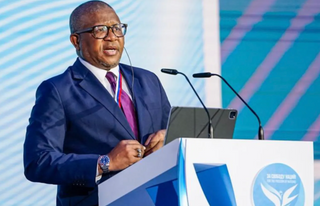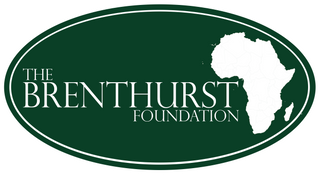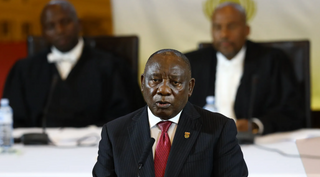News
Here’s What a South African Foreign Policy Should Look Like
South Africa has drifted so far from its democratic moorings that the only way to make coherent sense of its foreign policy is that it is doing the bidding of the rogue nations and organisations it strongly identifies with, from Russia to Hamas and Iran.

Director, The Brenthurst Foundation

Research Director, The Brenthurst Foundation


Last week the ANC’s Fikile Mbalula addressed the Fosotsampon — that’s the Forum of Supporters of the Struggle Against Modern Practices of Neocolonialism, for those who are falling behind on their acronyms or confusing it with one of Joe Biden’s speeches.
The event, opened by that glorious champion of human rights, Syria, and hosted by Moscow, was a gathering of anti-democratic states seeking to entrench the idea that unelected vote-riggers who run their countries like personal fiefdoms are the best guarantors of freedom.
South Africa — for now a democracy — stuck out like a sore thumb until Mbalula spoke and it became clear from its secretary-general’s utterances that the ANC was firmly in the authoritarian camp, a wholly owned subsidiary of Moscow.
“We have been honoured to be invited as the ANC to this profound gathering under the banner of the Forum of Supporters of the Struggle Against Modern Practices of Neocolonialism, which is aimed at ushering the freedom of nations,” said Mbalula, wearing a suit and tie. Bejewelled yellow tracksuits are apparently not in fashion with Russia’s nomenklatura.
It was a pity for Moscow’s propaganda apparatchiks that President Vladimir Putin’s strongest critic, Alexei Navalny, chose the same week to die. Never mind, they released a statement that he felt ill after a short walk and then passed away.
The truth was less flattering. It is common cause that Navalny was denied medical care and spent more than 300 days in solitary confinement before his death.
It was a further pity for Russia’s spin doctors that Putin had no choice but to bar Boris Nadezhdin, an opposition leader, from standing against him on an anti-war ticket in Russia’s forthcoming rigged election. Nadezhdin was rapidly gaining popularity and people were queuing around the block to sign up for his campaign, which garnered more than 100,000 signatures in a very short space of time.
With the casualty count hitting 400,000 for Russia’s “special military operation” in Ukraine, Russia’s Central Election Commission had no choice but to rule Nadezhdin out of order quickly, the Fosotsampon gathering notwithstanding. What is a comrade to do?
Mbalula appears to have missed these events and made no mention of them. The initial response from South Africa to Navalny’s death was arrogant and dismissive. Dirco spokesman, Clayson Monyela told City Press there would be no statement. “There are other politicians who’re being held in prisons and dying. If we issue a statement about one, we must be consistent,” he said.
But as a growing chorus of world leaders denounced the murder, the Minister of International Relations and Cooperation Dr Naledi Pandor did an about-turn, noting “with concern” Navalny’s death and hoping that his death would “thoroughly investigated” by the Russian authorities. Rather like hoping that Steve Biko’s death would be thoroughly investigated by the apartheid state.
Grave consequences
The trouble with being a wholly owned subsidiary of Moscow is that you become enmeshed in its shadow world of sleazy deals and backhanders and find that you have to follow the party line or the consequences might be grave, so to speak.
Gaza is on Russia’s list of acceptable causes, Ukraine is not. Nor are Sudan or Ethiopia. And in the Venn diagram of international relationships, Iran and Russia make common cause over Syria and Gaza. This anti-Western overlap attracts the radicals and zealots in the ANC, as much as it suits those seeking to ensure their commercial dealings.
South Africa has drifted so far from its democratic moorings that the only way to make coherent sense of its foreign policy is that it is doing the bidding of the rogue nations and organisations it strongly identifies with, from Russia to Hamas and Iran.
This approach reduces the country’s interests to those of the ruling party which has, to put it mildly, acquisitive tendencies. The lure of party funding and giant rent-laden infrastructure projects such as the recurring desire to build nuclear power stations override all else. The same rule of rent applies to those with business interests in Iran.
Core values
What then is the correct posture for South Africa’s foreign policy?
It begins with the country’s core values as espoused in the Constitution. We ought to be defenders of human rights and promoters of open, accountable and transparent democracy. We should raise our voices when civilians are unnecessarily killed in conflicts, as we have done in Gaza, but we should not allow foreign powers to dictate which conflicts are acceptable and which are not. We should be even-handed in this: Congolese, Sudanese, Syrian and Ukrainian lives are as important as Palestinian lives. Human rights are indivisible.
While doing so, we must place the need for open, transparent and accountable democracy at the forefront of our approach.
The decoupling of human rights from democracy is at best naïve, at worst manipulative. Our Constitution is clear on this: There can be no lasting, sustainable human rights without a system of government where the people choose their leaders in free elections and where institutions are given the power to prevent and halt abuses. On the other hand, less democracy equals more exposure to corruption.
We need to be very clear that the likes of Hamas in Gaza or its sponsors, Iran, or the Central Spider Apparatus in Moscow do not share this view with South Africa. They believe in the iron-fisted rule of an unelected, oligarchic power monopoly that subjugates the people. Naively believing that Hamas is a “liberation movement” paves the way for the perpetual repression of the Palestinian people by an unelected leadership with a proclivity for the worst types of violence.
Calling out Israeli military excesses is not good enough. If we really care about the Palestinians, we should want them to live in a democracy where their rights are protected by a free state. There is none of this in our vision.
If the South African government was serious about ending the Israel-Palestine conflict and wanted to walk to the talk of its own liberation negotiation experience, it would have taken a completely different tack to the one that President Cyril Ramaphosa’s regime has followed since 7 October.
Even before then, Pretoria should have been vociferously critical of the rocket attacks to which Israelis were constantly exposed, as much as it was critical of the Netanyahu government’s unwillingness to birth a two-state solution.
Instead of continuously criticising the Israelis’ failure at talks, going back to Camp David in 2000 with Yasser Arafat and Ehud Barak and subsequently between Ehud Olmert and Mahmoud Abbas, it should have also taken the Palestinians to task over their failures to deliver something more than keeping the dream alive.
But South Africa’s greatest failure is its inability to take a leaf out of its own (increasingly mythologised) history, and assiduously build common ground.

Instead of appearing with Palestinian scarfs and rhetorically hammering Israel after 7 October, when the Jewish nation had just experienced its bloodiest day since the Holocaust, Ramaphosa and his fellow travellers should have visited Israel, placed wreaths at the massacre sites, and gone to Ramallah, if possible Gaza, and, if necessary, Iran, Qatar and whomever else needed to be brought into the tent. While it was happy to speak to Hamas and Iran, the ANC government forced the Israeli ambassador out of South Africa.
Ramaphosa could have engaged in his own version of shuttle diplomacy, talking also to Washington and Brussels, using SA’s role in the Global South for something constructive and in South Africa’s strategic interests. Instead, Pretoria took a case to the International Court of Justice (ICJ), now failing twice in its attempt to get the court to stop the Israeli operation.
While Pretoria (of course) claims a victory at the ICJ, it was not the victory it (or the Iranians, or their Hamas proxy) sought. Instead of asking Hamas to leave or lay down its arms to protect the civilian population, and using this as a bargaining chip with Jerusalem, Pretoria expects a unilateral solution.
An effective foreign policy demands a little humility, not least given SA’s internal travails. People in glass houses, after all…
The only conclusion to such a cockeyed foreign policy methodology, is that South Africa is not interested in peace. Rather, it is interested in grandstanding politics, grabbing power and getting money.
Effective diplomacy is also a much tougher road than building up a TikTok following. It requires statecraft — the ability to project South Africa’s democratic project as a worthy global example and the willingness to be the party that can talk to both sides — and strategy, the means by which one can achieve this goal.
Becoming partisans for Russia’s view of a dystopian world ruled by autocratic oligarchs is at odds with the very core of our society. South Africa should step back from this alliance of global misfits and regain its balance.
We are dependent on the world in ways that few other countries are. Advanced economies in “the West” consume our manufacturing exports such as cars and agricultural produce while we are exporters of resources to China and others. Our ledger is somewhat skewed by our outsized imports from China, which is worrisome.
But we need to be exporters of more than cars and resources. We need to start exporting the ideals that underpin our democracy. That will mean speaking out when Russia invades Ukraine or when China suppresses the Uighurs. That’s a tough road and it may mean we skip the next Fosotsampon and pack away the yellow tracksuits of Gucci socialism.
But then what would the ANC have to show for itself?
This article originally appeared on the Daily Maverick
Photo: X / myanc

